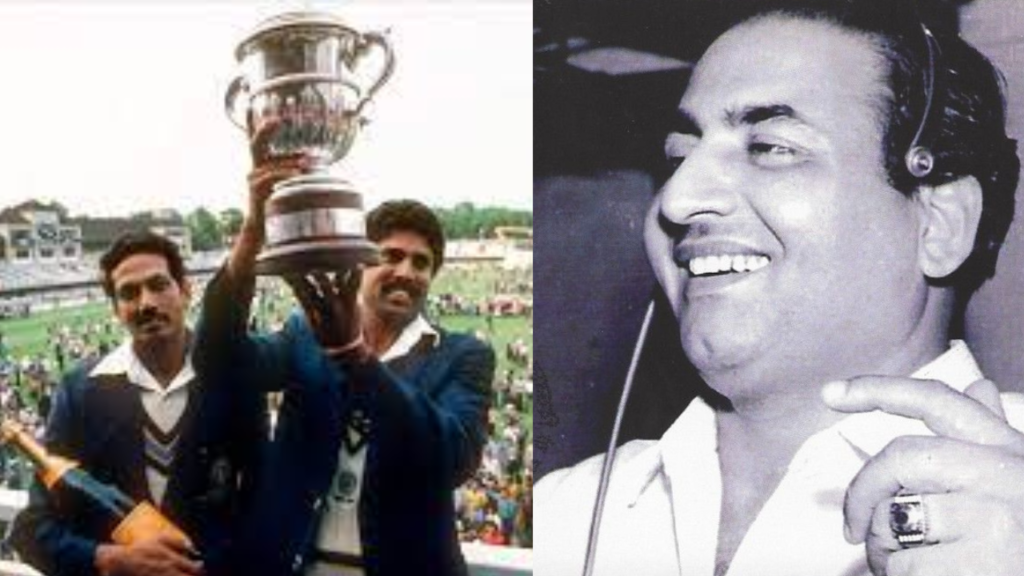“Hum kaale hai to kya hua dilwale hai
Hum to tere tere tere chahnewale hai
Hum kaale hai to kya hua dilwale hai”
One might wonder what this Mohammed Rafi song from the 1965 movie Gumnaam has to do with the India-West Indies World Cup final in 1983. After all, Bollywood was not as close to cricket back then as it has become since the origin of the Indian Premier League (IPL).
However, those who watched that game live on Doordarshan on the evening of June 25 exactly 40 years ago, will in all likelihood remember it. There was a link failure or some other technical glitch due to which there was no direct telecast for about half an hour when West Indies were batting. The Rafi song was played on TV during that break. It was a recording of a stage show. It seemed to have an energising effect on the viewers waiting for cricket.
I was a month shy of 10 when that World Cup took place. It was summer holidays. When Kapil Dev’s team beat Clive Lloyd’s in their first match, our family was in Darjeeling, in the hills of West Bengal. My maternal aunt lived there. We were in Berhampore in central Bengal, where my grandparents lived, when Kapil made 175 not out against Zimbabwe. Before the semi-final, we were at home in Calcutta (as it was known those days). Since it is in the southern part of the state, our World Cup journey literally headed south. The Indian team went from south to north.
Telecast resumption brings big news
Before that disruption in the telecast, West Indies were one down. I remember Gordon Greenidge shouldering arms to Balwinder Singh Sandhu, and the ball coming in to peg the off stump back. On our floor in a multi-storied building, all doors were open. Everybody in every flat was in front of the TV. When the live telecast resumed, up went a roar. West Indies were three down. Desmond Haynes and Viv Richards, both dismissed by Madan Lal. Those downcast and quiet after India got shot out for 183 were now screaming and pumping fists. I remember noticing this change in body language, although I was in no position to judge how strong the Indian comeback had been.
Then the game started changing, at a fast clip. Larry Gomes was caught at slip, Lloyd drove one uppishly to be caught at mid-off, Faoud Bacchus was taken brilliantly by Syed Kirmani behind the stumps. I could sense a blast of a celebration on the cards, but Jeff Dujon and Malcolm Marshall kept us on the edge of our seats with a dogged partnership. They were not dealing in boundaries, but neither did they have to. I could feel the pressure in the room. Even I might have been shaking a bit.
Out of nowhere, the roar was back. Dujon dragged Mohinder Amarnath back on to the stumps. That made them seven down. The rest was a matter of time and it did not take very long for Amarnath to trap Michael Holding in front of the stumps. There was no excessive celebration from him. I remember a gently smiling Amarnath running towards the striker’s end and picking up a stump, before accelerating and running towards the pavilion. In no time, the ground was swarmed by India fans.
First taste of bedlam
Since I myself was in a daze, I am unable to describe in detail what happened all around me. Suffice to say that was my first taste of bedlam. My father and some of the neighbourhood uncles were stern men. We, the kids, were scared of them. To see them participate in what was going on remains as memorable as the World Cup win. It was late in the evening, past 10 pm, maybe even later. People still decided to hit the roads to celebrate. I wanted to go too, but age ruled me out.
Those days, my younger brother and I used to be early to bed, because we attended school early in the morning. This coming in the middle of summer holidays, there was no restriction that night. We gathered at a neighbour’s house. Everybody brought what they had cooked for dinner, and it was communal eating and a lot of fun. This was my first late night, if I remember right. And a night of a lifetime for millions of Indians. For some reason, I kept humming ‘hum kaale hai to…’.
Also Read: How the 1983 World Cup Win Changed Cricket’s Balance of Power




